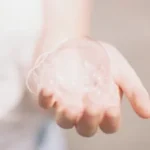- Scary face dreams represent hidden fears, anxieties, and unresolved conflicts that urge us to confront and address these issues.
- These dreams can also symbolize the fear of the unknown and the need for self-reflection and introspection.
- Scary face dreams may be linked to relationships, unresolved conflicts, or negative beliefs about ourselves, highlighting the importance of self-reflection and seeking support when needed.
- Coping strategies for dealing with scary face dreams include confronting the fear, embracing self-reflection, practicing self-care, and seeking support from loved ones or professionals.
Scary face dreams can be incredibly unsettling and can leave us feeling fearful and anxious. However, these dreams hold valuable messages and significant symbolism that can provide insights into our subconscious thoughts and emotions. By exploring the symbolic meaning of scary faces, as well as their possible implications in our personal lives, we can gain a better understanding of the messages these dreams are trying to convey.
Symbolism and Interpretation
1. Symbolic Meaning of Scary Faces
Faces in dreams hold deep symbolic meaning. They represent our identity, emotions, and how we present ourselves to the world. When these faces take on a scary or menacing appearance, it is essential to delve into the underlying symbolism to interpret their significance.
One possible interpretation of scary face dreams is that they represent hidden fears and anxieties. These dreams may reflect our deepest insecurities, unresolved conflicts, or repressed emotions. The scary faces can act as symbols for the fears and anxieties that we may be avoiding in our waking life, urging us to confront and address these issues.
Moreover, scary face dreams can also symbolize the fear of the unknown. The distorted or disfigured faces may represent aspects of ourselves or of life that are unfamiliar or outside of our comfort zones. These dreams can encourage us to explore the unknown, confront our fears, and embrace personal growth.
Furthermore, scary face dreams may symbolize a need for self-reflection and introspection. The terrifying visages can serve as mirrors into our own subconscious minds, revealing parts of ourselves that we may not be fully aware of or accepting. These dreams invite us to reflect on our fears, insecurities, and personal challenges, encouraging us to grow and evolve.
2. Possible Implications Linked to Personal Life
Scary face dreams often have connections to our personal lives, reflecting experiences or emotions that are important to us. Exploring these implications can provide further insights into the meaning of these dreams.
One possible implication of scary face dreams is linked to our relationships and interactions with others. The scary faces may represent people in our lives who evoke fear, discomfort, or negative emotions. It is essential to reflect on these relationships and consider whether they are healthy or if they are causing us harm or distress.
Additionally, scary face dreams may indicate unresolved conflicts or past traumas that still linger in our subconscious. These dreams can serve as reminders to address these unresolved issues and work towards healing and resolution. It may be helpful to seek support from a therapist or counselor to navigate these challenging emotions.
Furthermore, scary face dreams can symbolize our own fears and self-doubts. The terrifying visages may reflect our insecurities or negative beliefs about ourselves. These dreams can be opportunities for self-reflection, encouraging us to challenge these negative beliefs and embrace self-acceptance and self-love.
3. The Association to Personality and Emotional Health
Scary face dreams can also provide insights into our personality and emotional well-being. By exploring the meaning behind these dreams, we can gain a better understanding of ourselves and our inner world.
One possible association of scary face dreams is with our emotional health. These dreams may be indicators of underlying emotional stress or turmoil that we may be experiencing in our waking life. They can serve as a warning sign that we need to address and prioritize our emotional well-being.
Moreover, scary face dreams can highlight aspects of our personality that we may not fully acknowledge or accept. The terrifying visages may represent parts of ourselves that we keep hidden or repressed. These dreams invite us to embrace and integrate these aspects into our conscious awareness, promoting personal growth and self-acceptance.
Furthermore, the intensity of emotions experienced during scary face dreams can indicate the importance of certain aspects of our lives. It may be helpful to explore the particular emotions evoked in these dreams and consider how they relate to our waking life experiences. This self-reflection can provide valuable insights into our values, desires, and areas of personal growth.
4. Coping Strategies for Dealing with Scary Face Dreams
Dealing with the fear and anxiety associated with scary face dreams can be challenging. However, there are coping strategies that can help us navigate these dreams and process the emotions they evoke.
One effective coping strategy is to confront the fear head-on. Rather than avoiding or ignoring these dreams, it is important to acknowledge and explore their significance. By facing our fears, we can gain a better understanding of ourselves and our emotional landscape.
Additionally, embracing self-reflection and introspection is key to navigating scary face dreams. It involves delving deep into our own subconscious minds and reflecting on the emotions and experiences represented in these dreams. Journaling or talking to a trusted friend or therapist can provide a safe space for this self-reflection.
Furthermore, practicing self-care and self-compassion is crucial when dealing with the fear and anxiety associated with scary face dreams. Engaging in activities that promote relaxation, mindfulness, and emotional well-being can help alleviate stress and promote a sense of inner peace.
Lastly, seeking support from loved ones or professional help can be beneficial when navigating scary face dreams. Talking about our dreams and emotions with trusted individuals can provide validation and support. A therapist or counselor can offer guidance and techniques to cope with fear and anxiety in general, as well as specifically related to scary face dreams.
Psychological Analysis

Scary face dreams can be incredibly unsettling and often leave a lasting impression on the dreamer. These vivid and terrifying dreams tap into our deepest fears and anxieties, providing a glimpse into our subconscious mind and emotions. In this section, we will explore the psychological analysis of scary face dreams, shedding light on the triggers, effects, and hidden meanings behind these haunting visages.
1. Emotional Conflicts as a Trigger for Such Dreams
One of the primary triggers for scary face dreams is emotional conflict. Our subconscious mind often uses dreams as a means to process and confront unresolved emotions or conflicts that we may be experiencing in our waking lives. These conflicts can range from relationship issues to repressed emotions or past traumas.
In the context of scary face dreams, emotional conflicts may manifest as distorted or disfigured faces. These distorted faces reflect the inner turmoil and unease that the dreamer may be feeling. They serve as a powerful visual representation of the emotional conflict that needs to be acknowledged and resolved.
For example, let’s consider a scenario where a dreamer is experiencing ongoing conflict with a close friend or family member. The dreamer may have recurring scary face dreams where they encounter a menacing or threatening face. This type of dream can signify the fear and anxiety experienced in the relationship, as well as the need to address and resolve the underlying conflict.
2. The Role of Inner Demons or Deep-Seated Fears
Another significant aspect of scary face dreams is their association with inner demons or deep-seated fears. These dreams often present us with grotesque or terrifying faces that tap into our primal fears and anxieties. They serve as a mirror for our own insecurities, negative thoughts, and unresolved issues.
The appearance of a terrifying or disfigured face in a dream can represent our hidden fears and vulnerabilities. It may symbolize aspects of ourselves that we are reluctant to acknowledge or confront. These dreams invite us to delve deep into our subconscious mind and face these inner demons head-on.
For instance, a dreamer might have recurring scary face dreams where they encounter a familiar face transformed into something horrifying. This transformation could reflect the dreamer’s fear of change or their apprehension about the true intentions of that individual. It serves as a reminder to explore their own insecurities and anxieties related to trust and relationships.
3. Effects of Scary Face Dreams on the Dreamer’s Mental State
Scary face dreams can have significant effects on the dreamer’s mental state, often leaving them feeling fearful, anxious, or unsettled even after waking up. These dreams elicit intense emotions and can disrupt the dreamer’s sense of security and well-being.
Upon waking from a scary face dream, the dreamer may experience a rapid heartbeat, sweating, or a sense of foreboding. The vividness and realism of these dreams can make it difficult for the dreamer to shake off the fear and anxiety they evoke.
In some cases, scary face dreams can also lead to a sense of unease or paranoia in the waking life of the dreamer. They may become more cautious and vigilant, questioning the intentions and authenticity of those around them. This heightened state of alertness can impact their relationships and overall mental well-being.
However, it is important to note that scary face dreams can also serve as an opportunity for personal growth and self-reflection. By facing these fears within the safe confines of a dream, the dreamer can explore their innermost thoughts and emotions. With proper understanding and interpretation, these dreams can provide valuable insights into unresolved issues, fears, and insecurities, ultimately leading to personal development and healing.
4. Unraveling the Hidden Meanings Behind Scary Face Dreams
To unravel the hidden meanings behind scary face dreams, it is crucial to analyze the specific elements and emotions present in the dream. Consider the context of the dream and any recurring themes or patterns that emerge. Pay attention to the emotions you experienced during the dream and upon waking up.
It can be helpful to keep a dream journal and write down details about your scary face dreams. Note the specific characteristics of the faces, such as their expressions, distortions, or disfigurements. Also, consider any recognizable individuals or cultural references present in the dream.
By engaging in self-reflection and introspection, you can begin to unravel the symbolism and hidden messages behind these dreams. Ask yourself questions such as:
- What fears or anxieties does this dream bring up for me?
- Are there any unresolved conflicts or emotions in my waking life that may be reflected in this dream?
- How do I typically respond to fear or conflict in my life, and how does that relate to the dream?
Exploring these questions and delving into your own thoughts and emotions will provide valuable insights into the meaning behind your scary face dreams. Through this process of self-discovery and analysis, you can gain a deeper understanding of yourself and work towards resolution, personal growth, and healing.
By embracing self-reflection, understanding your emotional conflicts, and recognizing the role of inner demons or deep-seated fears, you can navigate the unsettling landscapes of your scary face dreams with greater insight and self-awareness. These dreams offer an opportunity for personal growth and understanding if you are willing to explore their hidden meanings and confront your fears head-on.
| Psychological Analysis of Scary Face Dreams |
|---|
| Emotions Conflicts as a Trigger for Such Dreams |
| The Role of Inner Demons or Deep-Seated Fears |
| Effects of Scary Face Dreams on the Dreamer’s Mental State |
Cross Cultural and Religious Meaning of Scary Face Dreams

Scary face dreams are not only a universal experience but also have diverse interpretations across different cultures and religions. The meaning and symbolism of these dreams can vary greatly depending on cultural beliefs, religious teachings, and local folklore. In this section, we will explore how scary face dreams are interpreted in various cultural contexts and religious perspectives.
1. Interpreting Scary Face Dreams in Different Cultures
Scary face dreams hold significance in many cultures around the world. The interpretations of these dreams often reflect the cultural norms, values, and beliefs of a particular society. Here are a few examples of how scary face dreams are understood in different cultures:
- Native American Culture:
- Native American culture often associates scary face dreams with messages from ancestral spirits or spirits of the natural world. These dreams may be seen as warnings or reminders to pay attention to one’s actions or seek guidance in order to avoid potential dangers.
- Eastern Cultures (China, Japan):
- In Eastern cultures, such as China and Japan, scary face dreams may be influenced by beliefs in supernatural beings or demons. These dreams might be seen as signs of spiritual unrest or negative energy surrounding the dreamer. Rituals or offerings may be performed to appease these entities and restore balance and harmony.
- Western Cultures:
- In Western cultures, scary face dreams may draw on folkloric traditions, such as stories of witches or evil spirits. These dreams could be associated with feelings of vulnerability or a sense of being targeted by malevolent forces. They can be seen as metaphors for internal struggles or external threats in a person’s waking life.
- African Cultures:
- Many African cultures believe that scary face dreams are a form of communication from ancestors or deities. These dreams may carry important messages or warnings related to the dreamer’s personal life or community affairs. Interpretation often involves consulting with spiritual leaders or diviners to decipher the meaning behind the dream.
2. How Various Religions View Scary Face Dreams
Religious beliefs and teachings also play a significant role in interpreting scary face dreams. Different religions offer distinct perspectives on the meaning and symbolism of these dreams. Here are a few examples:
- Christianity:
- In Christianity, scary face dreams may be seen as manifestations of spiritual warfare or encounters with demonic forces. These dreams are often interpreted as a call to prayer, seeking protection from evil influences, and finding strength in one’s faith.
- Islam:
- In Islam, scary face dreams can be understood as a test from Allah or a reflection of one’s spiritual state. These dreams may also be a sign of inner struggles or past sins that need to be addressed. Muslims are encouraged to seek guidance through prayer and reflection.
- Hinduism:
- In Hinduism, scary face dreams may be interpreted as encounters with supernatural beings or entities from other realms. These dreams can signify the presence of deities, ancestors, or negative forces. Interpretation often involves considering the specific symbols and cultural context of the dream.
- Buddhism:
- In Buddhism, scary face dreams may be viewed as a reflection of attachment, desire, or negative emotions that hinder spiritual progress. These dreams serve as reminders for practitioners to cultivate mindfulness, detachment, and compassion in order to overcome fear and suffering.
3. Common Symbols and Interpretations:
While interpretations of scary face dreams can vary across cultures and religions, there are some common symbols and themes that tend to recur:
- Fear and Anxiety
Scary face dreams often represent deep-rooted fears, anxieties, or unresolved issues in one’s waking life. - Self-Reflection
These dreams invite individuals to explore their inner thoughts, emotions, and traumas for personal growth and understanding. - Spiritual Significance
Scary face dreams can be seen as spiritual experiences or messages from the divine, guiding individuals on their spiritual journey and challenging them to face their fears.
It is important to note that interpretations of scary face dreams are highly subjective and can vary depending on the individual’s personal experiences, beliefs, and cultural background. The context and emotions surrounding the dream are essential for accurate interpretation.
Dealing With Scary Face Dreams

If you’ve ever experienced a scary face dream, you know how unsettling and disturbing it can be. These dreams can leave you feeling fearful, anxious, or confused, and it’s important to understand how to cope with them. In this article, we will explore some techniques and tips to help you manage and minimize these dreams.
1. Importance of Self-Care after having a Disturbing Dream
After having a disturbing dream, it’s crucial to prioritize self-care and take steps to nurture yourself. Here are some important aspects of self-care to consider:
- Process your emotions
Allow yourself to fully experience and acknowledge the emotions that arise from the dream. It’s normal to feel scared, anxious, or unsettled after a scary face dream. Take the time to sit with these emotions and try to understand where they may be coming from. - Practice relaxation techniques
Engaging in relaxation techniques can help calm your mind and reduce anxiety. Deep breathing exercises, meditation, or yoga can be particularly helpful in promoting a sense of calm and well-being. - Prioritize sleep hygiene
Maintaining good sleep hygiene is essential for overall well-being, including managing dreams. Create a relaxing bedtime routine, ensure your sleep environment is comfortable and free from distractions, and avoid stimulating activities or technology before bed. - Engage in activities that bring you joy
Engaging in activities that bring you joy and relaxation can help alleviate stress and promote a positive mindset. This could include hobbies, spending time in nature, listening to music, or practicing creative outlets like painting or writing. - Seek support from loved ones
Talking about your dreams with trusted friends or family members can provide an outlet for your feelings and emotions. Sharing your experiences can offer perspective and support as you navigate the unsettling effects of scary face dreams.
2. Seeking Professional Help: When and Why It’s Necessary
While scary face dreams are a normal part of the dreaming experience, there may be instances where seeking professional help is necessary. Here are some signs that it may be time to reach out to a therapist or counselor:
- Recurring nightmares
If you are experiencing recurring nightmares or disturbing dreams that significantly impact your sleep and daily functioning, it may be helpful to seek professional guidance. A therapist can help explore the underlying causes and provide strategies to manage these dreams. - Emotional distress
If the emotions evoked by your scary face dreams are causing significant emotional distress or interfering with your overall well-being, a therapist can provide support and help develop coping mechanisms. - Past trauma
If your scary face dreams are linked to past traumatic experiences and are triggering emotional or psychological distress, it may be beneficial to seek therapy. A therapist can assist in processing and healing from these traumatic events. - Persistent fear or anxiety
If you find that your scary face dreams are contributing to persistent fear or anxiety in your waking life, professional help can assist in addressing and managing these emotions.
Seeking professional help is a personal choice, and there is no shame in reaching out for support. A therapist or counselor can provide valuable guidance and strategies to navigate the impact of scary face dreams on your daily life.
3. Practical Techniques and Tips to Manage and Minimize These Dreams
While it may not be possible to completely eliminate scary face dreams, there are practical techniques and tips that can help manage and minimize their frequency or impact. Here are some methods to consider:
- Maintain a dream journal
Keeping a dream journal allows you to record and reflect on your dreams, including scary face dreams. Writing down the details of the dream immediately upon waking can help you remember them more clearly. Over time, patterns or themes may emerge, providing insight into the potential triggers or messages behind these dreams. - Practice lucid dreaming
Lucid dreaming is the practice of becoming aware that you are dreaming while still in the dream state. This awareness can give you some control over the content of the dream and may allow you to transform or redirect the scary face to something less unsettling. - Create a peaceful bedtime routine
Establishing a relaxing bedtime routine can help create a calm and peaceful atmosphere before sleep. Engage in activities such as reading a book, taking a warm bath, or practicing mindfulness meditation to promote relaxation and reduce anxiety. - Visualization techniques
Before going to sleep, try visualizing yourself in a peaceful and serene environment. Imagine yourself surrounded by positive energy and protection. These visualizations can help create a sense of safety and security, minimizing the likelihood of scary face dreams. - Avoid stimulating substances
Stimulants such as caffeine or nicotine close to bedtime can interfere with the quality of your sleep and potentially increase the likelihood of vivid or disturbing dreams. Limiting or avoiding these substances before bed may help reduce the occurrence of scary face dreams. - Practice self-affirmations
Before going to bed, repeat positive affirmations to yourself to reinforce feelings of safety and reassurance. Affirmations such as “I am strong,” “I am safe,” or “I am in control of my dreams” can help shift your mindset and promote more positive dream experiences.
Everyone’s experiences with dreams are unique, and what works for one person may not work for another. It may be helpful to experiment with different techniques and strategies to find what works best for you in managing and minimizing scary face dreams.
By prioritizing self-care, seeking professional help when necessary, and employing practical techniques, you can navigate these unsettling dreams with greater understanding, resilience, and peace of mind.
If you’ve been experiencing scary face dreams, it’s important to remember that these dreams are often a symbol of deeper fears or anxieties that may need to be addressed. While it can be difficult to confront these fears, embracing self-reflection and seeking support from loved ones or professionals can help you develop coping strategies to manage them. Remember to practice self-care and prioritize your mental and emotional wellbeing. By doing so, you can begin to explore the root causes of your scary face dreams, heal from past traumas, and gain a greater sense of peace and clarity in your waking life.










Leave a Reply